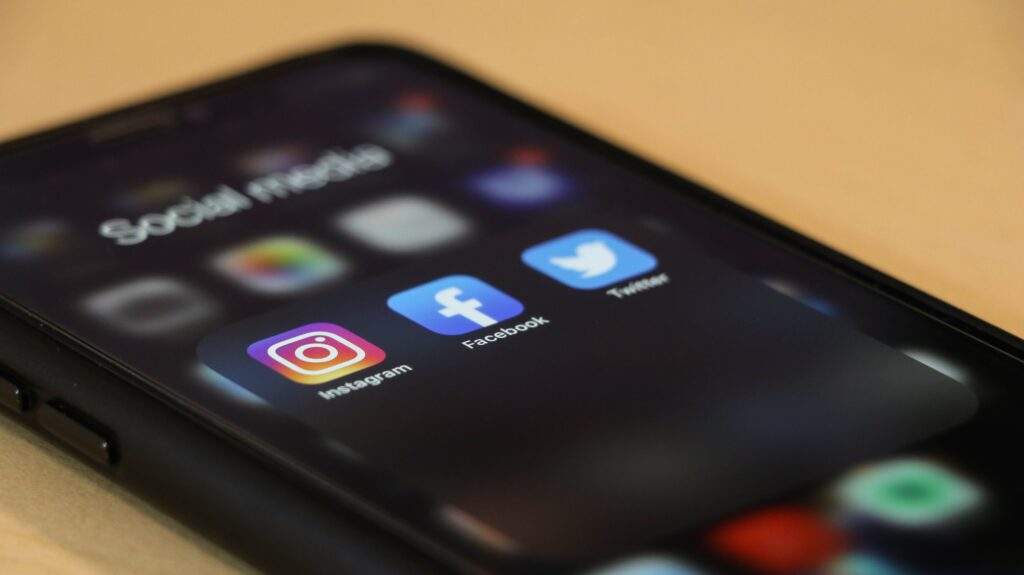One student joined Instagram, another deleted Twitter outright

Some Ryerson University students have noticed their relationship with social media has changed since the start of the pandemic.
Canadians’ social media use has jumped. Over 27 per cent of Canadians spent 20 hours or more online each week for personal use in 2020 compared to 19 per cent in 2018, according to a Canadian Internet Use Survey by Statistics Canada.
Jessica Varghese, a first-year social work student at Ryerson, joined Instagram in December 2019 as a way to stay connected with friends, along with her already established Snapchat account.
She said she noticed her Instagram usage increased drastically once the pandemic hit, saying she checked the app constantly, since she couldn’t see her friends in person.
“I’m very dependent on [Instagram],” Varghese said. “I’m dependent on it to talk to people. I’m dependent on it to see what everyone is doing. I’m dependent on it so I stay current or I know what’s happening in trends.”
Survey results indicate Varghese isn’t alone: many Canadians describe their relationship with social media similarly. Eighty-four per cent of Canadians said they relied on their smartphone for personal use in some capacity, according to the StatCan survey.
With devices so pervasive, 71 per cent of young Canadians between the ages of 15 to 24 said they checked their phone every half hour and 17 per cent checked their phone every five minutes.
Although Varghese finds herself on her phone most of the time, she has curated her feed to follow accounts that show content she enjoys seeing to ensure “mindful” scrolling and a positive experience on social media.
“Instagram, Snapchat, that’s all just the highlight reel of someone’s life,” Varghese said. “A lot could be going [on] behind the scenes that I don’t know about.”
Arvin Jagayat, a PhD student in social, political and cyber-psychology at Ryerson, says that people have the agency to change their habits to develop a healthier relationship with social media.
“Oftentimes, once people do make those changes, they see the results fairly immediately and they’re able to go on about their lives and realize they’re not as dependent as they might think they are,” he said.
Erica Iacobucci, a first-year social work student at Ryerson, deleted her Twitter app at the start of the pandemic and now primarily uses Instagram to run the business she started in June 2020.
Iacobucci says she hardly spends any time online now and she feels like her relationship with social media has improved compared to a year ago. Now, she says, she is in a healthy place — after filtering who she follows.
“I’ve done introspection work with myself and realized that likes and comments and all that really don’t matter, at least to me,” Iacobucci said. “I don’t have the energy to always constantly think about that stuff. It drains your energy.”
Bailey Parnell, founder and researcher of #SafeSocial, a socially-minded non-profit organization, stresses the importance of being mindful before, during and after accessing a social media platform.
Parnell says social media should be looked at like a risky behaviour, similar to sex, drugs or alcohol, where the user can be exposed to potential harm.
Being mindful of who you follow and what you’re looking at will allow the user to gain what social media can offer without the risk over time, she said, adding that “Mindful social media use is being present in the moment and intentional with why you’re using, what you’re consuming and how you’re consuming.”
Despite Canadians spending countless hours on their devices, being online is not always necessarily a bad thing.
Parnell says that people need breaks and spending 20 minutes on social media while being entertained is similar to someone watching a 20-minute TV show in their spare time.
“Even though we focus mostly on the risks of it, there is also a positive outcome to using social media,” she said, “and that is entertainment.”
Simone Gavros was the Health Reporter for the Fall 2021 semester.

